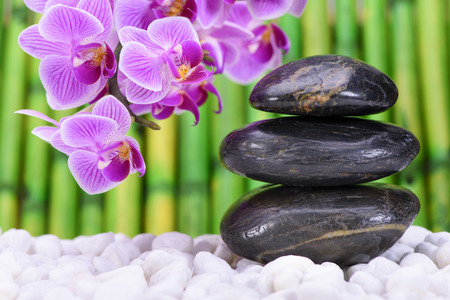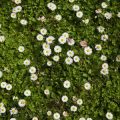Introduction to British Herbal Teas and Relaxation
Herbal teas have long held a cherished place in British culture, serving as both a comfort beverage and a gentle remedy for daily stresses. The tradition of brewing herbal infusions dates back centuries, woven into the fabric of British social rituals and home remedies alike. Unlike traditional black tea, herbal teas utilise a wide array of native and imported botanicals—from calming chamomile and fragrant lavender to soothing valerian root. Historically, these blends were crafted not only for their pleasant flavours but also for their reputed benefits in promoting relaxation and supporting restorative sleep. In modern Britain, the evening ritual of sipping herbal tea remains a mindful practice for many, symbolising a pause from the fast pace of contemporary life. Whether enjoyed alone before bed or shared among friends during a cosy gathering, these teas encapsulate the UK’s enduring appreciation for natural wellness solutions and highlight the ongoing connection between nature, culture, and quality rest.
Key British Herbs for Sleep and Calm
Traditional British herbal teas have long been valued for their calming effects and ability to support restful sleep. Three of the most prominent herbs used across the UK are chamomile, valerian, and lavender. Each herb not only boasts a rich history within British folk medicine but also demonstrates specific benefits supported by modern research.
Chamomile: The Quintessential Calming Herb
Chamomile (Matricaria chamomilla) is perhaps the most iconic British herbal remedy for relaxation. Historically grown in English cottage gardens, chamomile was traditionally brewed as an evening tea to encourage gentle sleep. Its mild flavour and soothing aroma make it a staple in British households. Recent studies indicate that chamomile may help reduce anxiety and improve sleep quality due to its natural antioxidant apigenin, which binds to receptors in the brain to promote relaxation.
Valerian: Nature’s Tranquiliser
Valerian (Valeriana officinalis), native to parts of Europe including Britain, has been used since medieval times as a natural sedative. Its roots are commonly dried and used in teas targeting insomnia or restlessness. Modern clinical trials suggest valerian may shorten the time needed to fall asleep and enhance overall sleep quality, though its earthy taste is often blended with other herbs for palatability.
Lavender: Aromatic Aid for Stress Relief
Lavender (Lavandula angustifolia) thrives in the British climate and is well known both as a fragrant garden plant and as a therapeutic tea ingredient. In traditional British medicine, lavender infusions were recommended for nervous tension and sleeplessness. Evidence from recent studies shows that lavender can reduce heart rate and blood pressure, supporting relaxation before bedtime.
Comparing Key Properties of Traditional British Sleep Herbs
| Herb | Origin | Common Uses | Evidence-Based Benefits |
|---|---|---|---|
| Chamomile | England & Europe | Evening tea, calming tonic | Anxiety reduction, improved sleep onset |
| Valerian | Britain & Europe | Sedative tea blend, insomnia relief | Shorter sleep latency, deeper sleep cycles |
| Lavender | UK gardens & fields | Stress-relief tea, aroma therapy | Lowered stress markers, enhanced calmness |
Cultural Significance and Modern Usage
The continued popularity of these herbs in contemporary Britain highlights their enduring role in local wellness traditions. Many Britons now opt for blends combining two or more of these ingredients to maximise their calming effects without relying on pharmaceuticals. Whether enjoyed alone or as part of an evening ritual, these traditional herbs remain at the core of Britain’s approach to natural sleep support.
![]()
3. Traditional Tea Blends and Brewing Customs
Classic British herbal teas for relaxation have their roots in centuries-old traditions, blending time-tested botanicals with distinct local customs. Chamomile tea remains a perennial favourite, renowned for its gentle, apple-like flavour and scientifically backed sedative properties. Equally popular is valerian root tea, which has been used in Britain since medieval times as a natural remedy for insomnia and nervous tension. Other classic blends include lemon balm and lavender—both cherished for their calming aromas and mild tastes.
When it comes to brewing, the British approach is meticulous yet comforting. Herbal infusions are typically steeped in freshly boiled water that has cooled slightly, as boiling water can damage delicate flavours. The standard practice involves using a teapot—often ceramic or porcelain—to allow the herbs space to unfurl and release their full spectrum of essential oils. The typical steeping time ranges from five to ten minutes, depending on the blend’s intensity and personal preference.
Tea etiquette also plays a significant role in the British experience. Serving herbal tea is often accompanied by the ritual of offering biscuits or light cakes, fostering an atmosphere of warmth and hospitality. Traditionally, milk is not added to herbal teas—unlike black tea—preserving the nuanced botanical notes. Instead, a slice of lemon or a touch of honey may be offered to enhance flavour without overpowering it.
Overall, these customs reflect a uniquely British balance between scientific awareness of health benefits and a deep-rooted cultural appreciation for moments of quiet relaxation. This blend of tradition and evidence-based practice makes herbal tea not just a beverage, but an integral part of daily wellbeing in the UK.
4. Scientific Evidence: Do These Teas Really Work?
The popularity of traditional British herbal teas for sleep and relaxation is rooted in centuries-old practices, but how does their reputation hold up under the scrutiny of modern science? Recent studies have examined several commonly used herbs—such as chamomile, valerian, and lemon balm—to evaluate their efficacy in promoting better sleep and reducing stress. While anecdotal evidence abounds, clinical data provides a clearer picture of what these natural remedies can truly offer.
Key Herbal Teas and Their Scientific Backing
| Herbal Tea | Main Active Compounds | Reported Effects | Scientific Evidence |
|---|---|---|---|
| Chamomile | Apigenin, flavonoids | Promotes relaxation; may aid sleep onset | Several randomised controlled trials suggest moderate improvements in sleep quality among adults with insomnia symptoms. |
| Valerian Root | Valerenic acid, isovaleric acid | Reduces time to fall asleep; may improve subjective sleep quality | A meta-analysis of 16 studies indicates mixed results, with some participants reporting improved sleep latency and quality. |
| Lemon Balm | Rosmarinic acid, terpenes | Relieves mild anxiety; supports relaxation | Pilot studies demonstrate reduced anxiety and improved sleep when taken in combination with other herbs. |
The UK Context: Cautious Optimism Among Practitioners
NHS guidance and British herbalists often advocate these teas as complementary therapies rather than replacements for clinical treatment. The placebo effect cannot be discounted, particularly given the ritualistic aspect of making and drinking tea—a cornerstone of British culture. However, most research points to mild-to-moderate benefits, especially for those with mild symptoms of stress or insomnia. It’s worth noting that large-scale, high-quality trials are still needed for conclusive recommendations.
Takeaway for British Consumers
If you’re considering incorporating traditional herbal teas into your evening routine, the available scientific evidence suggests potential modest benefits with minimal risk. For severe or persistent sleep issues, consulting with a GP or qualified medical herbalist is always advised.
5. Incorporating Herbal Teas into a Modern British Lifestyle
Integrating traditional herbal teas into the fabric of modern British life can be both enjoyable and beneficial, especially for those seeking improved sleep and relaxation. While the classic image of afternoon tea still holds cultural resonance, today’s busy schedules require practical strategies to make these calming rituals accessible and effective.
Building Herbal Tea Rituals Into Your Evening Routine
Establishing a consistent bedtime routine is key to supporting healthy sleep patterns. Begin by selecting a specific time each evening to prepare your herbal tea – ideally 30 to 60 minutes before bed. Choose blends known for their relaxing properties, such as chamomile or valerian root, both widely available in UK supermarkets and health shops. Let the process of brewing become a mindful activity: use a favourite mug, infuse loose leaves or high-quality bags, and take note of the aroma as the herbs steep.
Creating a Soothing Environment
The environment in which you enjoy your tea can significantly influence its calming effect. Dim the lights, switch off digital devices, and consider pairing your cup with gentle background music or quiet reading. In winter, a woollen throw or soft slippers add comfort; in summer, enjoy your herbal infusion in a tranquil garden spot or on a balcony as dusk falls. These small adjustments help signal to your body that it’s time to unwind.
Practical Tips for Busy Lifestyles
If evenings are hectic, batch-preparing herbal teas can save time: brew a pot in advance and store it in a thermos flask, ready for when you need it. For those who struggle with caffeine sensitivity, switching from traditional black tea to caffeine-free herbal options after 6 pm is an easy win. Lastly, consider incorporating family members or housemates into your ritual—sharing a pot of herbal tea can foster connection while collectively winding down from the day.
By weaving these practical steps into everyday life, you not only preserve elements of cherished British tradition but also harness the evidence-backed benefits of herbal teas for sleep and relaxation—making them truly relevant in contemporary times.
6. Potential Side Effects and Precautions
While traditional British herbal teas such as chamomile, valerian root, and lemon balm are generally regarded as safe for most people, it is essential to approach their use with a balanced understanding of possible interactions and side effects. Not all herbs suit every individual, and some may cause adverse reactions or interact with prescription medications.
Possible Side Effects
Chamomile is widely consumed for its calming properties, but in rare cases, it may cause allergic reactions, particularly in individuals sensitive to plants in the Asteraceae family (such as ragweed). Valerian root, while popular for promoting sleep, can sometimes lead to dizziness, headaches, or gastrointestinal disturbances. Lemon balm is usually well-tolerated but may occasionally cause nausea or abdominal pain if consumed in excess.
Drug Interactions
Certain herbal teas can interact with common medications. For example, valerian may enhance the effects of sedatives or sleeping tablets prescribed by your GP. Likewise, chamomile could potentially interact with blood thinners like warfarin, increasing the risk of bleeding. It is crucial to check for possible herb-drug interactions before adding these teas to your daily routine.
Considerations for Vulnerable Groups
Pregnant or breastfeeding women, children, and individuals with chronic health conditions should exercise particular caution. The safety data on many herbal remedies in these populations remains limited. For example, valerian is not recommended during pregnancy due to insufficient evidence on its safety profile.
Safe Use Guidelines
To minimise risk, always source herbal teas from reputable UK suppliers who comply with local safety standards. Start with small amounts to gauge your body’s response and avoid mixing multiple herbs unless advised by a qualified professional.
Above all, consult your local pharmacist or GP before introducing new herbal teas into your wellness regimen—especially if you are taking medication or managing ongoing health conditions. Professional guidance ensures safe and effective integration of traditional British herbal teas into your lifestyle while respecting both their benefits and limitations.


